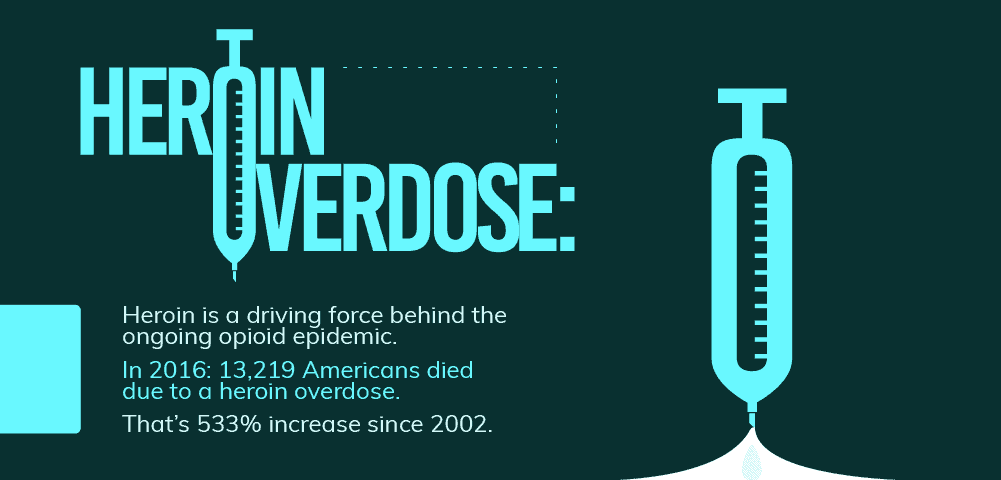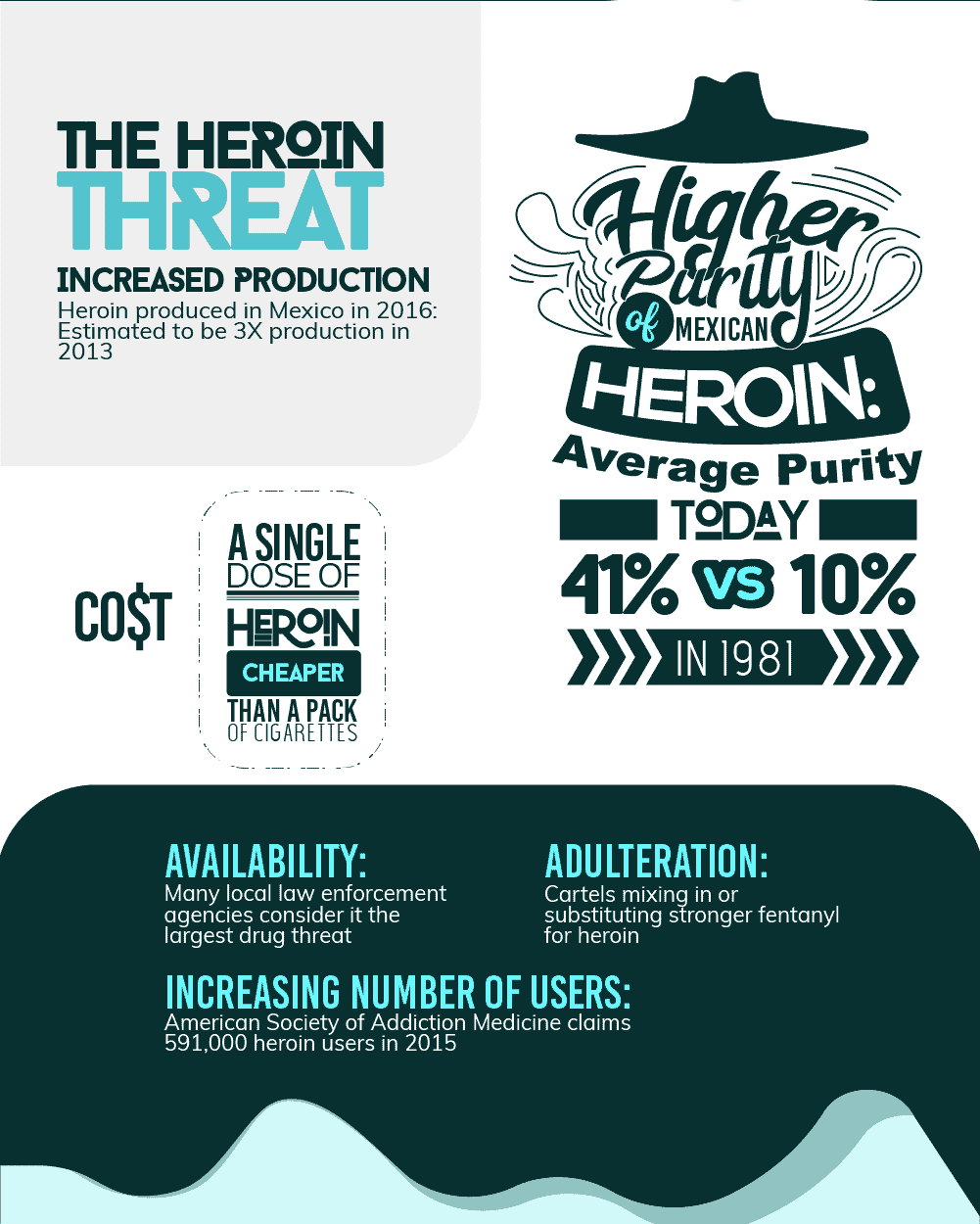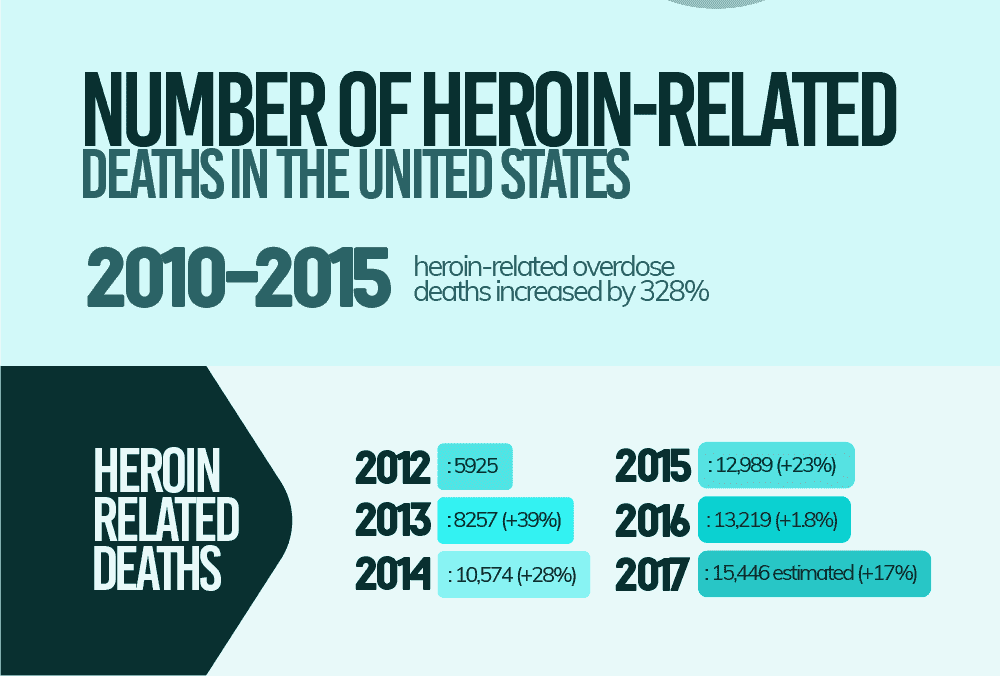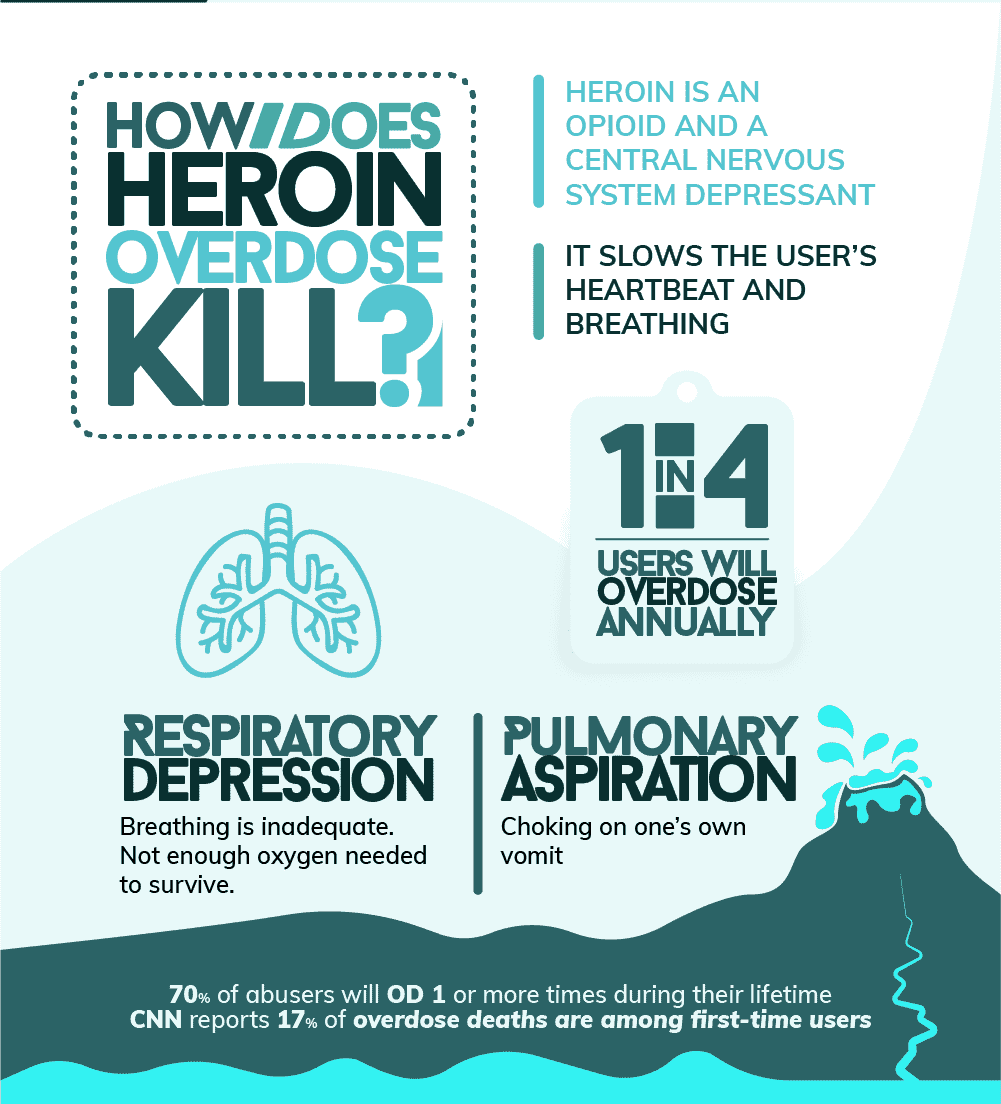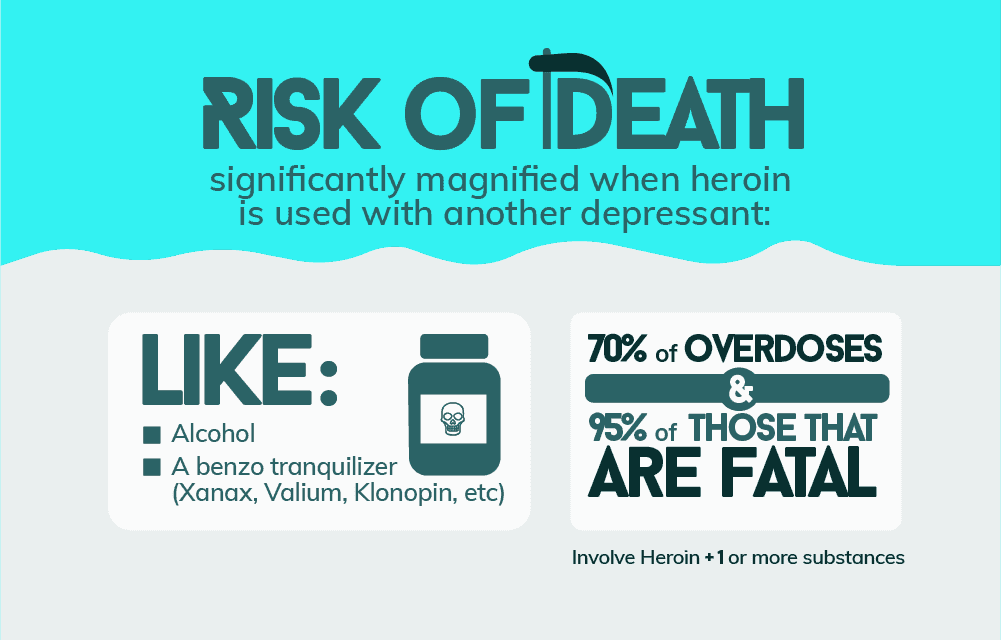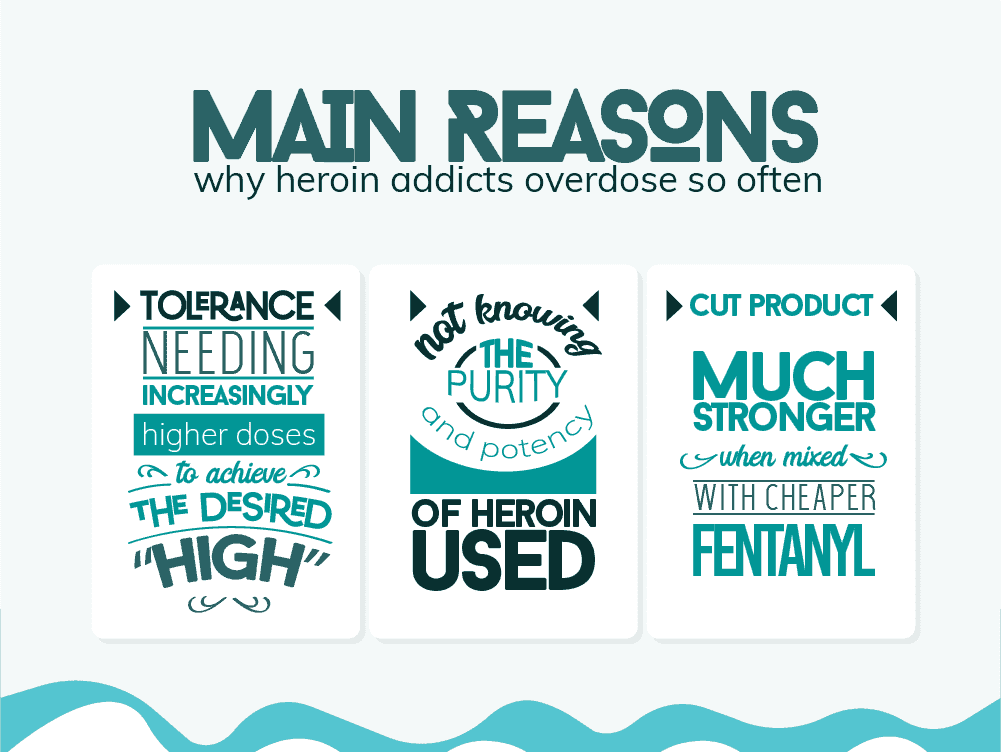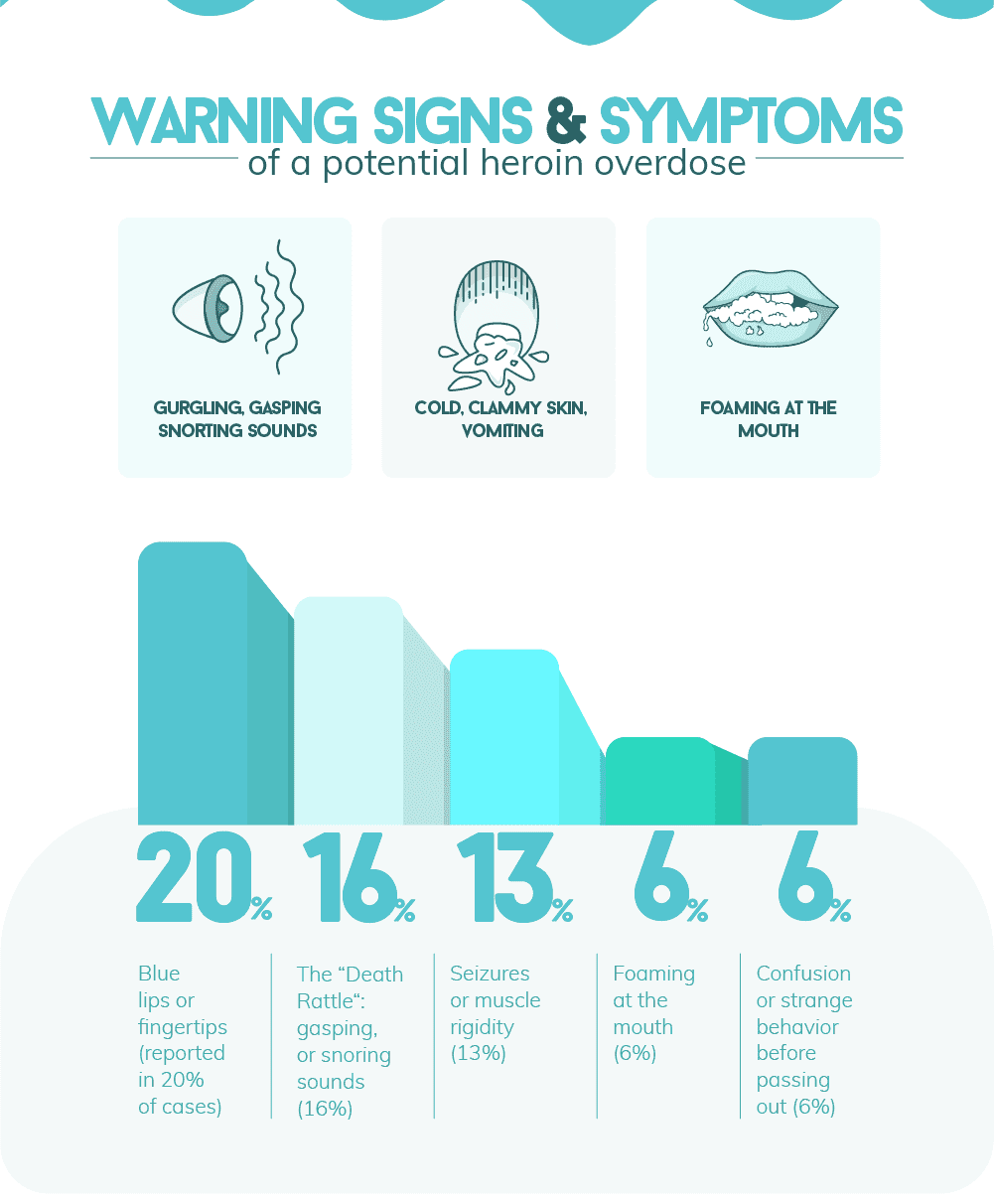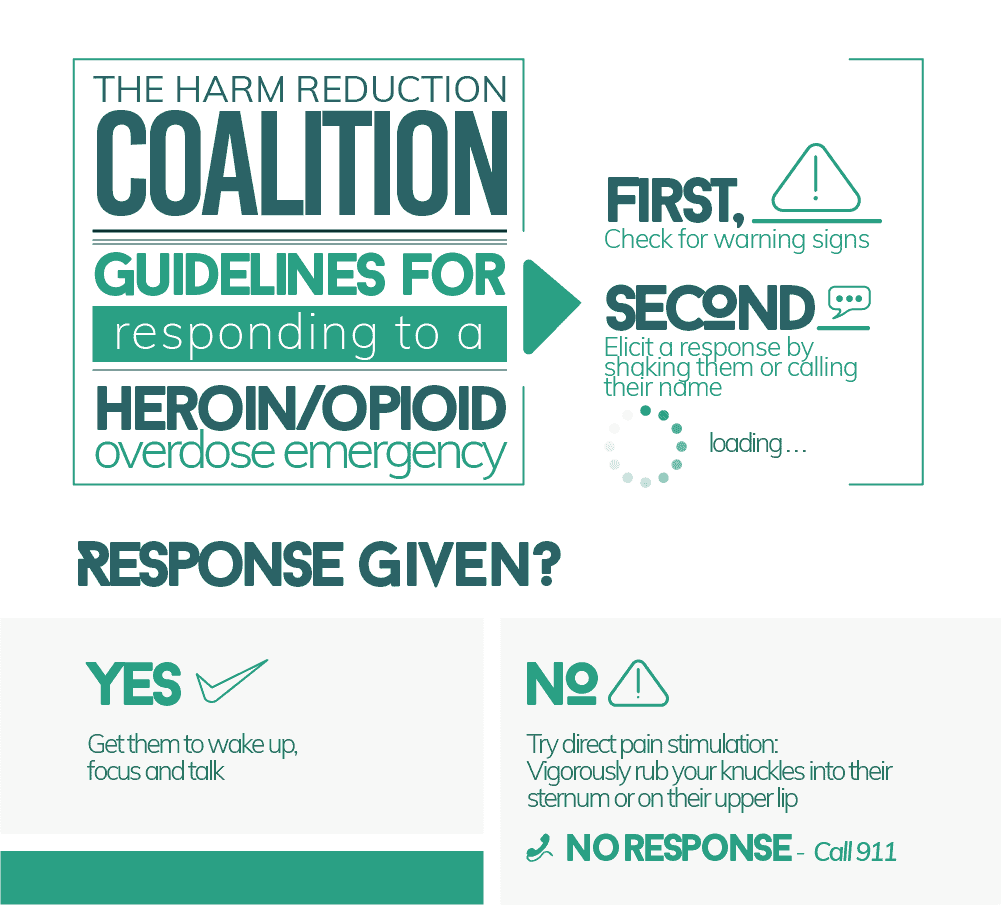Heroin overdose deaths increased more than 533% between 2002 and 2016, which remains one of the most concerning heroin facts for people who struggle with addiction.
Why Are Heroin Users Overdosing?
As a highly addictive opioid, heroin users quickly feel the drug’s sedative effects after they use it. Heroin users can build a tolerance to the drug over time, leading them to seek out more of the drug to feel its effects.
Some other risk factors for heroin overdose include:
- Availability – Mexico produced more than three times the amount of heroin in 2016 compared to 2013.
- Potency – Mexican heroin is more than four times purer than in 1981.
- Cost – The drug is cheaper than a pack of cigarettes in many cities in the U.S.
- Adulteration – Many heroin makers and dealers mix their supply with other dangerous drugs, like fentanyl, making the drug more dangerous.
- The number of users – More than an estimated 591,000 people in the U.S. used heroin in 2015.
More than 13,000 people died of a heroin overdose in 2016, which will likely continue to rise in the coming years. As more people begin to use heroin, it is essential to recognize how lethal the drug is and spot the warning signs of an overdose.
How Does a Heroin Overdose Kill?
Similar to other opioids like OxyContin and Vicodin, heroin is a nervous system depressant. As the drug works its way through a person’s body, it will significantly slow their breathing and heart rate. If a person’s breathing is too low to supply enough oxygen, they can die. While the nervous system is depressed, a person is also much more likely to pass out. As this happens, they may vomit and choke to death.
- One in every four heroin users will overdose annually
- 70% of heroin users will overdose in their life
- 17% of overdose deaths occur in first-time users
When heroin users also drink or take other depressants like Xanax, they are even more likely to overdose. Nearly 70% of all heroin overdoses, and 95% of fatal heroin overdoses, involved more than one depressant substance.
Why Are Heroin Overdoses so Deadly?
Since heroin is such an addictive illegal drug, the risks associated with abusing it are even higher than with prescription opioids. The most significant risk factors for increasing heroin overdoses include:
- Tolerance building
- Unknown purity and potency
- Products cut with fentanyl, a much more potent opioid than heroin
Signs of a Heroin Overdose
Spotting a heroin overdose can be challenging since heroin users typically pass out when experiencing a typical high. Some telltale signs of an overdose include:
- Blue lips or fingertips
- Gurgling or rattling sounds when breathing
- Seizures or muscle rigidity
- Foaming at the mouth
- Confusion or strange behavior before passing out
- Cold, clammy skin
- Discolored skin, blue for light-skinned people and ashen gray for dark-skinned people
- Weak, nearly undetectable pulse
When a person overdoses on heroin, they usually do not immediately die. They will, however, be entirely unresponsive to shaking, shouting, or pain. If professionals can provide within one to three hours, they have a good chance of surviving.
Responding to a Heroin Overdose
If you suspect someone is overdosing on heroin, it is vital to get help right away. Check and see if the person is:
- Breathing. If not, provide a few rescue breaths.
- Responsive. If they respond, try to get them awake and focused.
- Able to talk. If so, try to engage in some conversation.
- Their usual skin color. Skin discoloration is a sign of overdose.
If the person is unresponsive, try pain stimulation by vigorously rubbing your knuckles in their sternum or upper lip. If they continue to be unresponsive, call 911; similarly, if they respond and complain about tightness or pain in their chest, call 911.
After calling 911, roll the person on their side with one knee bent to support this position. Since someone overdosing could choke on vomit, this position allows their airway to empty. If you have a heroin overdose medication, like Narcan, now is the time to use it.
What Is Naloxone?
Naloxone is the generic name for Narcan, a drug that reverses heroin or opioid overdose. By quickly working in the brain to reverse the effects, the drug can help to normalize breathing within two to three minutes.
When the drug starts working, the person overdosing will immediately begin to experience heroin withdrawal symptoms such as headache, runny nose, and profuse sweating.
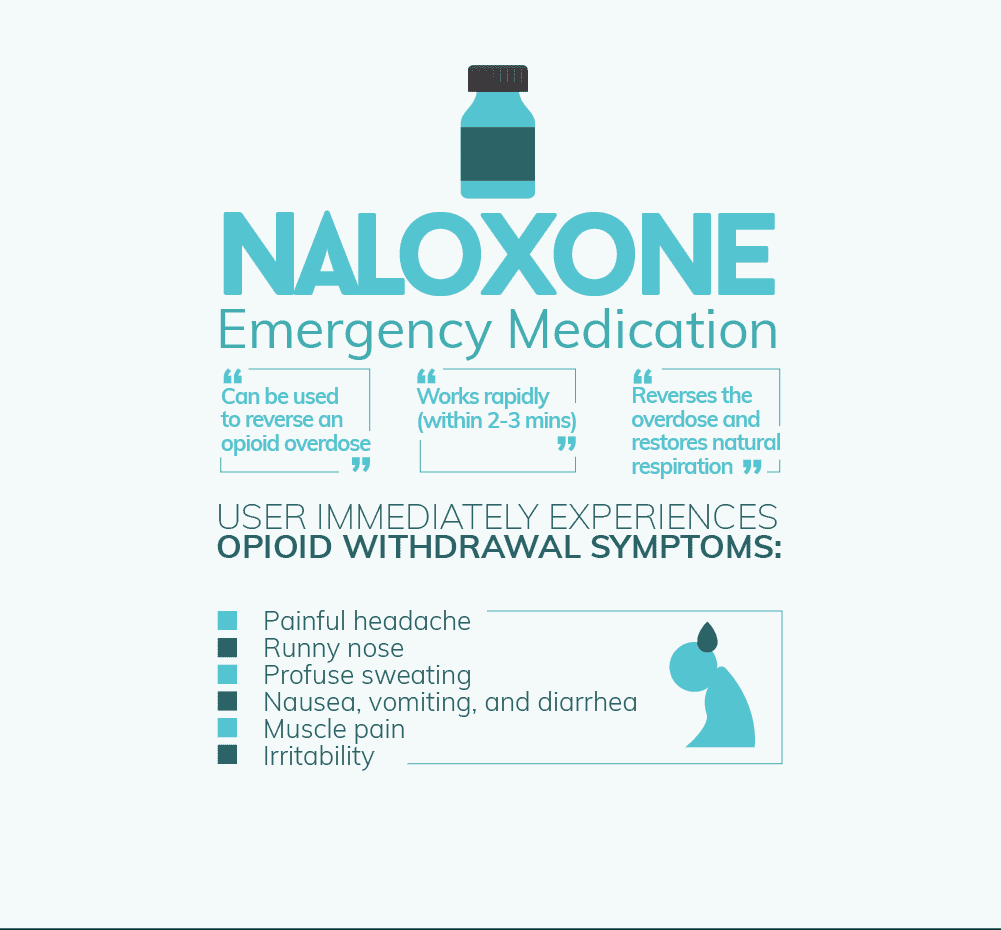
Heroin Addiction Treatment at Northpoint Recovery
If you or a loved one struggles with heroin addiction, getting treatment now could avoid a fatal overdose. Our experienced team will help you manage the withdrawal symptoms as you detox and provide you with the skills you need to start your recovery journey. Contact us at 888.296.8976 today to get started.
What Did you Think About This Blog?
Give it a Rating!
[kkstarratings]


